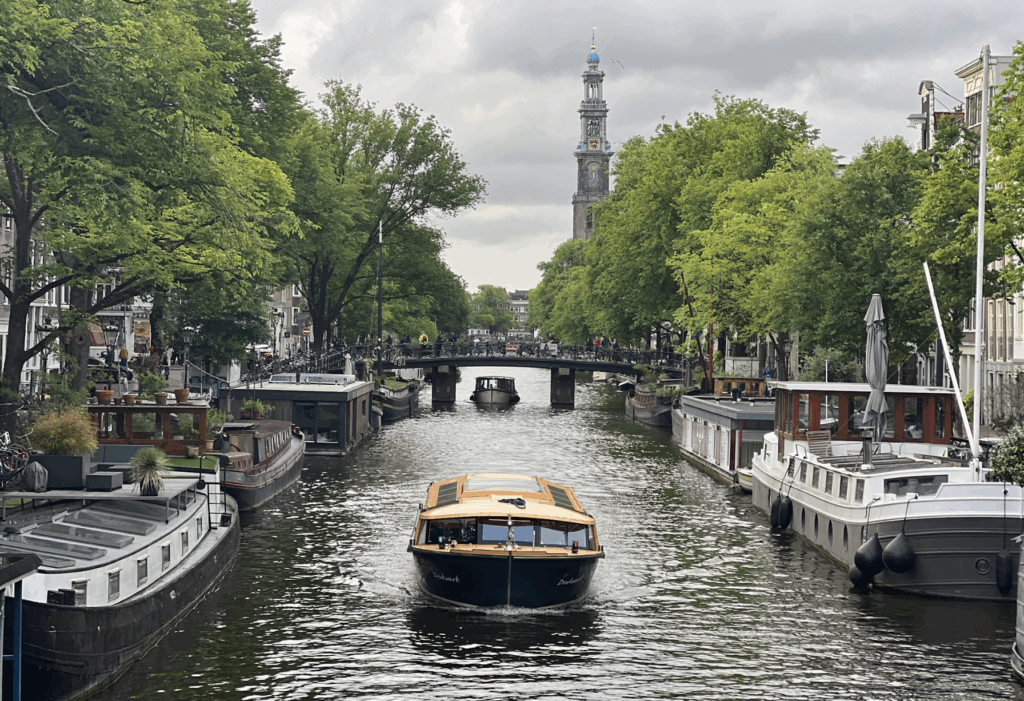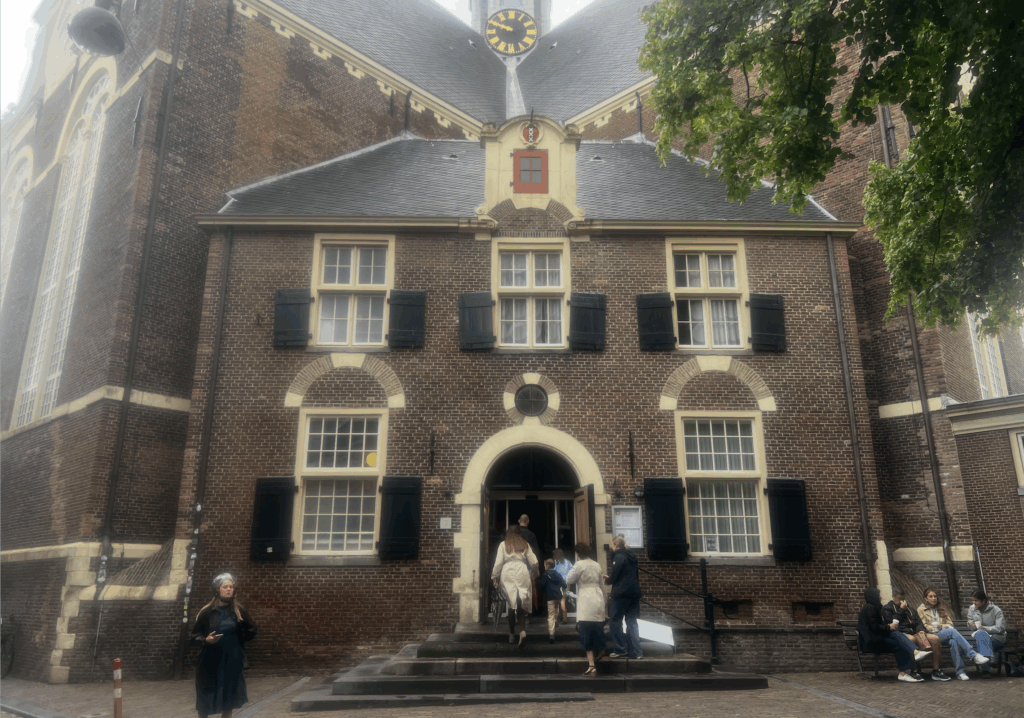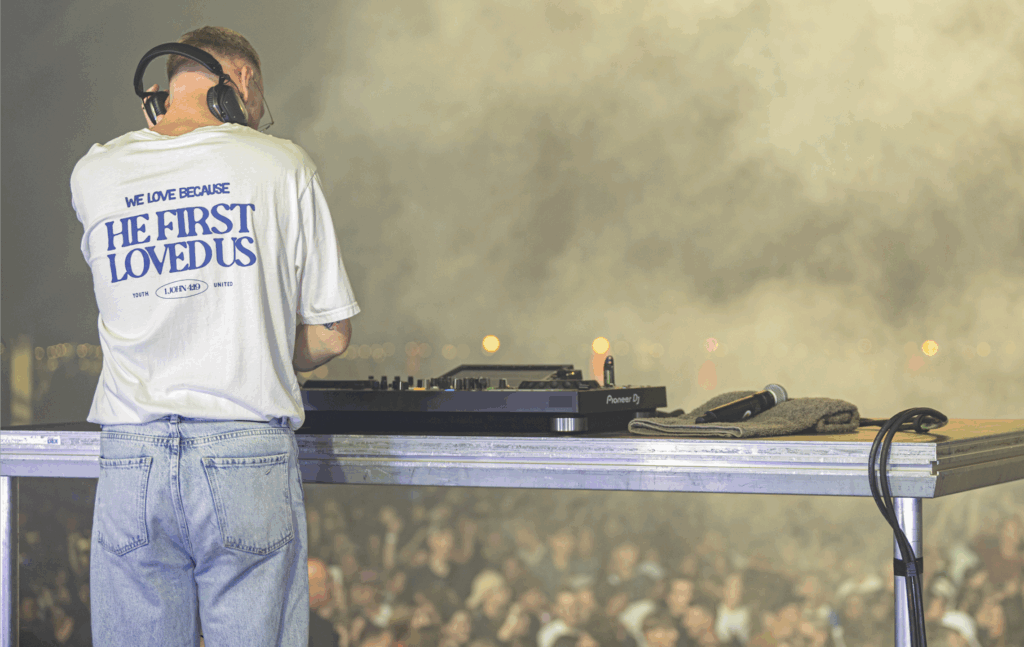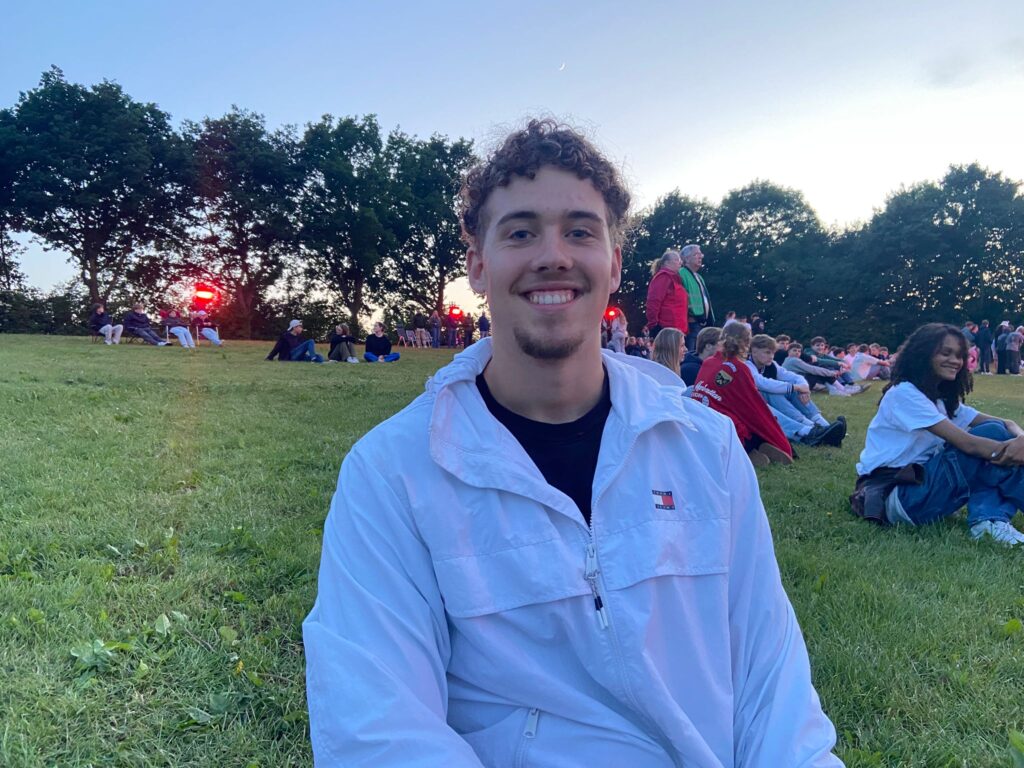In one of the world’s most secular countries, some Gen Z Christians are finding faith again — but not at church
Description
In the Netherlands, church bells still chime on Sundays, a tradition that’s echoed through the centuries. But attendance in the country has declined dramatically over the past 50 years.
The Netherlands was once a society where Protestants and Catholics lived in distinct but parallel worlds known as “pillars” — each with their own schools, political parties and newspapers. But those pillars began to crumble after World War II.
“The decline became huge — of church attendance,” said Ronelle Sonnenberg, an associate professor at the Protestant Theological University in the Dutch city of Utrecht. “It was not connected to your social bubble anymore, so it was even less relevant.”
By the late 1960s, nearly 70% of Dutch people identified as religious. Today, the reverse is true: About 60% of Dutch people say they have no religion at all.
<figure class="wp-block-image size-large">
 <figcaption class="wp-element-caption">A view of a canal in Amsterdam with the Westerkerk, a Protestant church, in the distance, June 6, 2025.Joshua Coe/The World</figcaption></figure>
<figcaption class="wp-element-caption">A view of a canal in Amsterdam with the Westerkerk, a Protestant church, in the distance, June 6, 2025.Joshua Coe/The World</figcaption></figure>But beneath the surface of this secular landscape, spirituality seems to be stirring. Last year marked the first in decades to see a reversal of this downward trend. Though modest, there was a 2% increase in the number of people identifying as religious in the country, according to government statistics. While Islam has been the fastest growing religion in recent years, the bump was seen in Christian denominations, particularly among Protestants.
And while church attendance is still down, independent research has found one potential source of the increase: Gen Z.
“Which is surprising in a way… and now [we’re trying] to understand this trend,” Sonnenberg said.
She pointed out similar phenomena elsewhere in Europe, in the UK and Finland for example.
“In absolute numbers it’s still not a big change but the trend is no longer declining,” she added.
<figure class="wp-block-image size-large">
 <figcaption class="wp-element-caption">Churchgoers enter the Noorderkerk, a Dutch Protestant Church in Amsterdam, for the baptism of over a dozen young people. Pastor Johan Visser said that unlike rural churches that have seen declining attendance, churches like his in the city are bolstered by young attendees as well as immigrant communities, June 8, 2025.Joshua Coe/The World</figcaption></figure>
<figcaption class="wp-element-caption">Churchgoers enter the Noorderkerk, a Dutch Protestant Church in Amsterdam, for the baptism of over a dozen young people. Pastor Johan Visser said that unlike rural churches that have seen declining attendance, churches like his in the city are bolstered by young attendees as well as immigrant communities, June 8, 2025.Joshua Coe/The World</figcaption></figure>Sonnenberg pointed to the study “God in the Netherlands,” which has been tracking religious trends in the country since the 1960s. It found that more members of Gen Z identify as Christian compared to millennials.
“Young people have a lot of stress, a lot of possibilities, but also a lot of uncertainties — and that is growing,” Sonnenberg explained. “Does that make the tradition of faith — with a long history, with proven rituals — attractive to them?”
For 20-year-old Sophie van der Berg, the answer is yes.
“If I feel uncomfortable, I know that He is with me,” she said. “You feel just fine knowing that He is with you, even if you feel alone or unwanted. You know that He is there with you.”
<figure class="wp-block-image size-large">
 <figcaption class="wp-element-caption">Sophie van der Berg, 20, attended opening day of Opwekking on Thursday, 29 May, 2025. She says it’s an opportunity to connect with other young Christians.Courtesy of Wies van der Stroom</figcaption></figure>
<figcaption class="wp-element-caption">Sophie van der Berg, 20, attended opening day of Opwekking on Thursday, 29 May, 2025. She says it’s an opportunity to connect with other young Christians.Courtesy of Wies van der Stroom</figcaption></figure>Van der Berg was attending Opwekking, which means “Revival” — a massive four-day Christian festival held each year in the Netherlands. The event drew 60,000 people in-person and over 300,000 more online. Traditional worship services and prayer meetings are accompanied by live music, multimedia presentations and even Christian electronic dance music.
One of the performers this year was Roberto Rosso, a Christian DJ and missionary who mixes his faith with EDM. Hundreds of young people packed in under a massive tent to watch his performance on the conference’s opening night.
“This young generation is open-minded,” Rosso said. “They don’t go to church — they can find everything on social media, on YouTube or on Spotify, for example, through my music. And so, they discover a new way of being a church.”
<figure class="wp-block-image size-large">
 <figcaption class="wp-element-caption">Roberto Rosso, a self-styled Christian DJ and missionary, performs on stage at Opwekking, a Christian conference in Biddinghuizen, the Netherlands, May 29, 2025.Courtesy of Jeffrey Heijnen/Opwekking</figcaption></figure>
<figcaption class="wp-element-caption">Roberto Rosso, a self-styled Christian DJ and missionary, performs on stage at Opwekking, a Christian conference in Biddinghuizen, the Netherlands, May 29, 2025.Courtesy of Jeffrey Heijnen/Opwekking</figcaption></figure>This year, nearly half the attendees at Opwekking were under the age of 30, according to organizers. For many, like 16-year-old high school student Barni, who did not want to give his full name, the journey to faith began in a time of anxiety and stress.
“I always went out with friends. I have a lot of different hobbies. I always enjoyed doing [them] but there was still a hole in my heart,” Barni said. “The moment I went to a church I just felt my heart being filled and I knew I didn’t have to look any further.”
But he said he found his faith deepened through social media.
<figure class="wp-block-image size-large">
 <figcaption class="wp-element-caption">Opwekking attendee Barni, 16, who did not want to share his full name, sits just outside a tent hosting Christian music acts, May 29, 2025.Courtesy of Wies van der Stroom</figcaption></figure>
<figcaption class="wp-element-caption">Opwekking attendee Barni, 16, who did not want to share his full name, sits just outside a tent hosting Christian music acts, May 29, 2025.Courtesy of Wies van der Stroom</figcaption></figure>“When I try to learn new things about Christianity, I could read the Bible, but where else should I look?” he asked. “Then I went on social media and saw a lot of people preaching or talking about faith and how it changed their lives. So, that really was a motivation to look further into the religion.”
Social media is teeming with influencers offering Christian content — from sermons and testimonies to faith-based fashion advice. Among the most prominent in the Netherlands is Zara Goedemans, a 22-year-old Pentecostal Christian and TikTok personality with over a million followers.
“I just love a good lip combo,” she says in one video, before seamlessly transitioning into a discussion about faith in Dutch. In another, she offers seven tips to “get back to God.” Tip number one: Remember what you’re grateful for.
“Even if you don’t believe, this is always a good one,” she says in the video.
<figure class="wp-block-embed is-type-video is-provider-tiktok wp-block-embed-tiktok">
<figure class="thumbnail">&</figure>
@zarajanice Get ready with mee english version again
♬ origineel geluid – Zaargoedemans#grwm #zaargoedemans #38weekspregnant

Goedemans is part beauty influencer, part “God-fluencer,” as she calls herself.
“I do influence people about God, about what God is saying,” she said. “The responsibility that God has given me at this young age, it’s the biggest gift he cou





